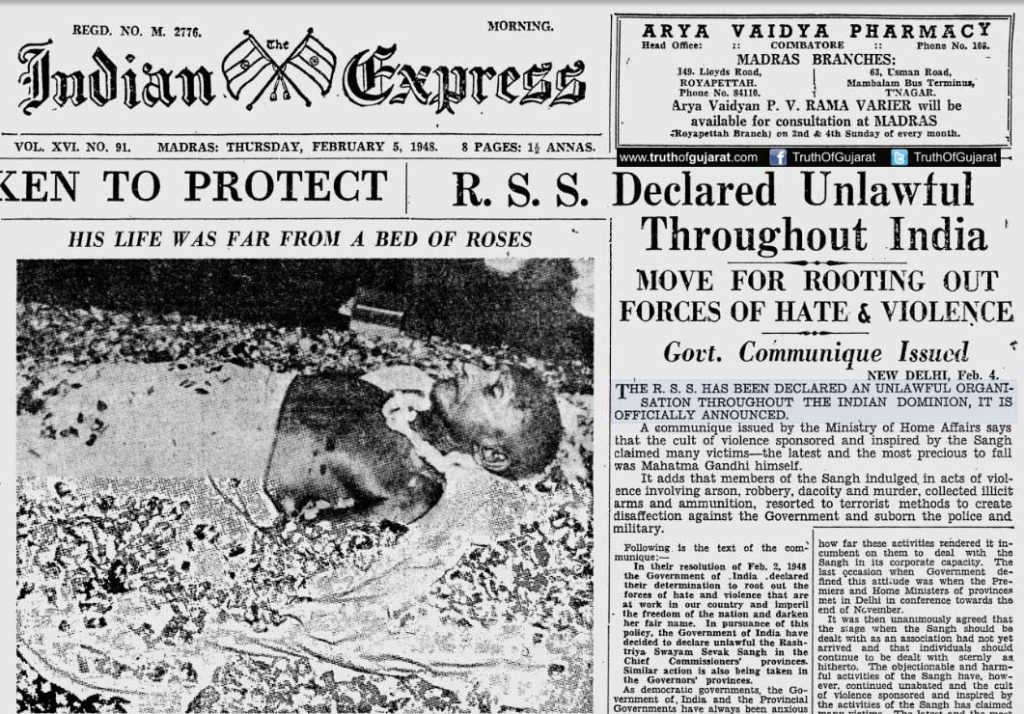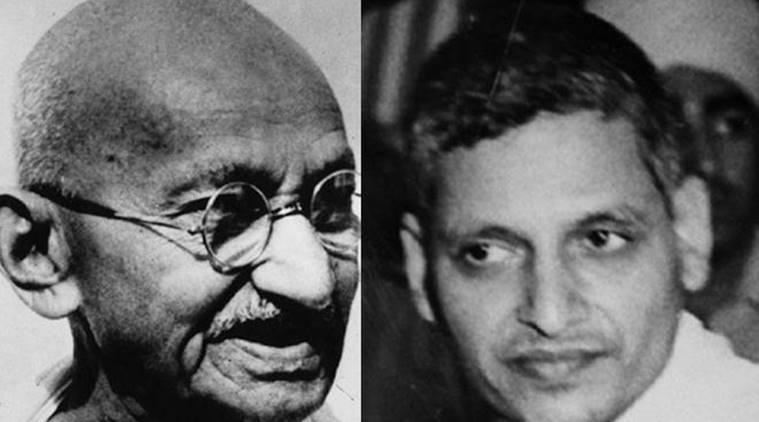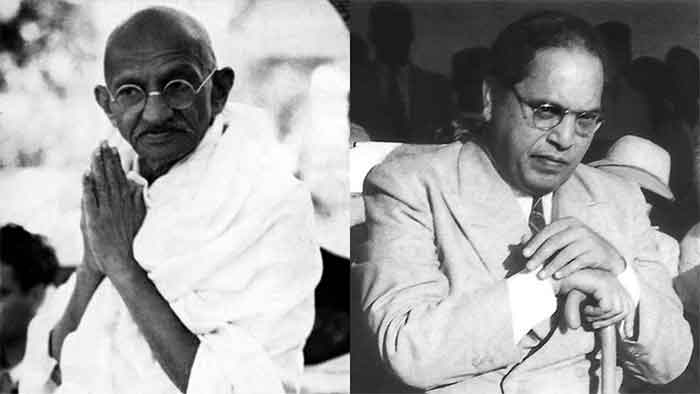
In a voice choked with sadness and emotion, two hours after the assassination of Mahatma Gandhi on 30th January 1948, Pt. Jawaharlal Nehru, first Prime Minister of India, while announcing the dastardly act to the nation through All India Radio, inter alia said: “…The light that has illumined this country for these many years will illumine this country for many more years, and a thousand years later, that light will be seen in this country and the world will see it and it will give solace to innumerable hearts…”
Seventy-six years ago, Mahatma Gandhi’s life was abruptly terminated. Surely, he would have never thought that his end would be so unexpected, less than six months after he and the whole band of freedom fighters, many of whom had suffered greatly and sacrificed their lives, for India’s freedom from the colonial yoke.
Those who sacrifice their life and endure persecution for the benefit of humankind have a very high station in the sight of God. While none of us can fully fathom the mysteries of martyrdom and why so much innocent blood is shed, the history of humankind is replete with soul-stirring episodes of supreme sacrifice, such as that of Jesus Christ and his apostles; Imam Husayn and his entire family, massacred on the plain of Karbila; Guru Tegh Bahadur, who at the urging of his minor son, later Guru Gobind Singh, willingly offered his life, refusing to yield to the diktat of a tyrant; the assassination of Gandhiji, Father of the Nation, are just a few examples.
Today let’s reflect on the life of Gandhiji. What was the message of his death? What does he have to teach the world? With so much violence everywhere today, what is so significant about Bapu’s killing? We can answer these questions with the word “yagna”. Yagna was the spirit of his life and the message of his death. Every breath of his life, including the last, was an oblation to his country, his principles and his faith in God. The theme of his life was truly sacrifice. He could have been a wealthy attorney. He could have had a life of relative ease and prosperity. However, he was man devoted to his country and to its freedom. Through his tireless effort and his simple piety, he showed the world how through principles of satyagraha, ahimsa and sarvodaya his fellow-country men and women could be inspired and motivated to achieve greatness. However, in spite of national and international acclaim, he never lost his humility, his dedication and his spirit of sacrifice. Rather, the flames of his true yagna to Bharat mata seemed to only to grow until he, himself, was the poornahuti, or final offering.
Gandhiji’s spirit of nonviolence and sacrifice did not only pertain to overt actions. It was a quality of the spirit—a quality of humble love for all human beings. There is a story of a man travelling by train to Porbandar in the same coach as Gandhiji. However, the man did not know that the skinny old man in his coach was Mahatma Gandhi. So, all night long this man lay down on the seat, occupied the entire berth and pushed Gandhiji and put his feet on him and left Gandhiji with barely enough room to sit upright. However, Gandhiji did not fight, nor complain. How easy it would have been to shout and say, “I am Mahatma Gandhi; give me room in the coach.” But Gandhiji’s ahimsa was an ahimsa of the tongue and an ahimsa of the heart. So, he simply let the man use as much of the seat as he desired.
As the train pulled into Porbandar the man mentioned that he was going to see the famous Mahatma Gandhi. Gandhiji still remained silent. He had no need to stray from divine humility and disclose his identity. As Gandhiji descended from the train to a welcoming crowd of thousands, the man fell at his feet, begging for forgiveness. Gandhiji, of course, blessed and forgave him, telling him only that he should be more respectful of others, regardless of who they are. He taught the man the true lesson of sarvodaya, for the man learned that everyone must be treated with dignity and respect even those who are less fortunate.
Fully aware of his shortcomings, Gandhiji tenaciously clung to truth and virtue all his life. The Bhagavad-Gita was his closest companion and source of guidance. How unfortunate it is that today so many people claim that their lives and their work are “God’s”. Yet, they use this as an excuse to lie, to cheat and even to kill. And, at the end it is clear that they merely used God’s name in the service of themselves. Gandhiji remained pure and his death is the clearest example. Due to his commitment to ahimsa and complete surrender in God he refused to have bodyguards. Hence, on that fateful day as he climbed the four sandstone steps where people had gathered for the evening prayer meeting, a ‘stout young man in khaki dress’ made obeisance to him and the very next moment fired three shots from his pistol that was hidden in his pocket. Gandhiji collapsed on the ground and gasping for breath uttered “hey Ram,” “hey Ram.” It was 17 minutes past 5:00 pm.
Gandhiji would not have wanted to be only remembered in history books. He would not want to be remembered only as the freedom fighter who led India to independence. He would want his message to live on; he would want his yagna to continue burning, to continue bringing light and warmth to all the world. He was steadfast in his commitment to the law of nonviolence which he believed was the law of love and fervently wanted to make it the law of our species.
It is within the power of everyone, just as Gandhiji showed through his life to bring about positive change. When enough of us prioritize the well-being of future generation above our own instant gratification, the country will progress rapidly and every citizen will benefit greatly from positive and sustainable development. To this end, the words of Martin Luther King Jr., also a martyr, are so pertinent: “If humanity is to progress, Gandhi is inescapable…We may ignore him at our own risk.”
Dr. A. K. Merchant is a social worker, independent researcher working with some non-governmental organizations in the fields of education, environment and the interfaith movement. Views expressed are personal.














































